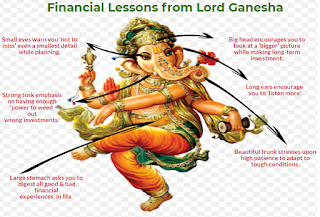How would a bank know that someone is
trustworthy enough to pay back the loan amount they take? A credit score helps
financial institutions understand whether someone is creditworthy or not. This
summary of an individual’s financial summary enlists all credit-related
transactions made under the individual’s name and evaluate how much loan amount
will be manageable for them.
In simple words, your CRIF
Credit Score tells the bank what kind of a borrower you will be
by looking at the range of your score. So, what will your score say about you
at 850 and what will it mean at 400?
Related
Reads: 7 Quick Tips to
Increase Your Credit Score
Here’s what your score would indicate
about you as a borrower:
Super
Awesome Borrower: Above 818
This means that you got an A+ on your
report card! You are the sincerest and brightest of all
borrowers having the best possible creditscore needed for personal loan. When a bank sees your financial
profile, they want to lend you more with attractive offers because you are a
mindful borrower responsible for credit.
Your high score reveals that you would
have never defaulted on any loan EMIs and credit card dues. It also tells that
you have the right mix of credit and a reasonable length of repayment history.
You are the borrower of any financial institution’s dreams! Not just that, a
high credit
score means low-interest rates, which indicate more savings
down the line.
Prime
Borrower: 727-817
You may not be seasoned in the game of
credit give and take, but you have proven your worth till now. This range of
score says that you have been doing the right things and working hard to build
a suitable credit profile. If you kept pacing forward this way, you would soon
land yourself in the super awesome category of borrowers.
This range won’t bring you all the
offers, but you will be eligible for a range of credit cards and loans at a
slightly high-interest rate. If you touch the super awesome category, your
interest rates will lower a bit. This range can even help you secure a home and
car loan!
Decent
Borrowers: 636 - 726
If you are new to the world of building a
credit history and made a few mistakes, then you will fall under this category. While
you certainly don’t have the best of scores, you have a decent enough credit
score for personal loan. You haven’t damaged your profile so much that it cannot be
redeemed, but you have to put in some work.
A score this low could indicate that you
have been late at paying a couple of loan EMIs or credit card dues. This credit
score might not exempt you from qualifying for loans, but these loans would
come to you at higher interest rates and non-negotiable loan terms.
Risky
Borrowers: 546 - 635
At this level, your credit
score says that you might be going through some tough credit
times. A few delinquent payments and a couple of defaulted loan EMIs could have
led you here. Recovering from these setbacks might take you a decent amount of
time, and you might have to reconsider a lot of your upcoming financial
obligations and plans.
For lenders, this comes as a concern that
won’t stop them from offering you credit altogether. You will qualify for
smaller loan amounts at higher interest rates.
Highly
Risky Borrowers: 300 - 545
You are either new to the game, or you
have made multiple faulty moves. All-in-all, it tells the lenders that you are
not responsible for the credit you have taken on till now. It shows that you
are a significant risk for financial institutions as well. You could fall in
this range even when you have no credit history at all!
Either way, getting a loan or credit card
is going to be a big task for you.
If you want to get better
at building your credit history, you must keep in mind the factors that
determine your credit score and learn how to keep up with
them diligently. Your payment history, age and type of credit, credit
utilization ratio, credit behaviour and inquiries, all account for your CRIF creditscore.



Comments
Post a Comment